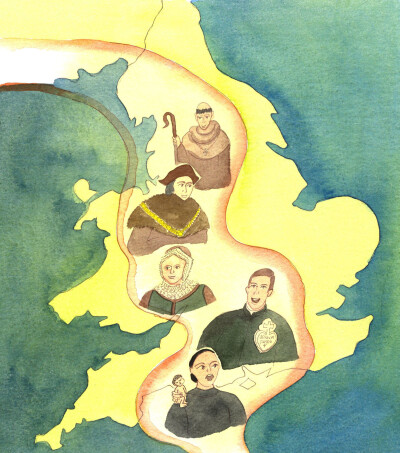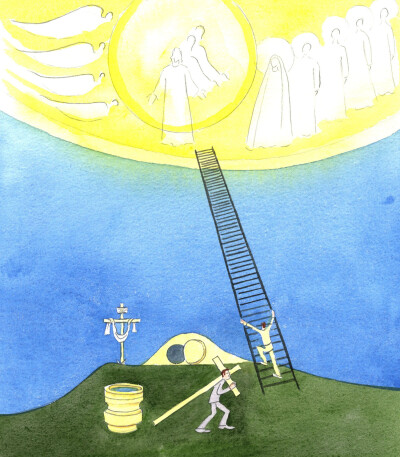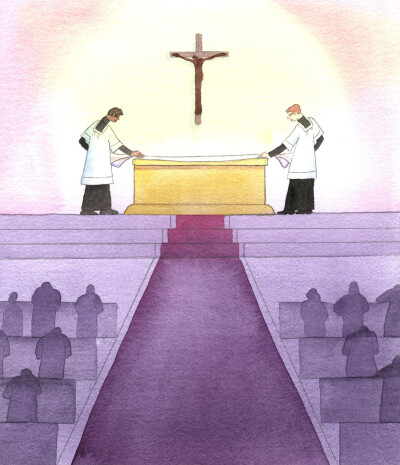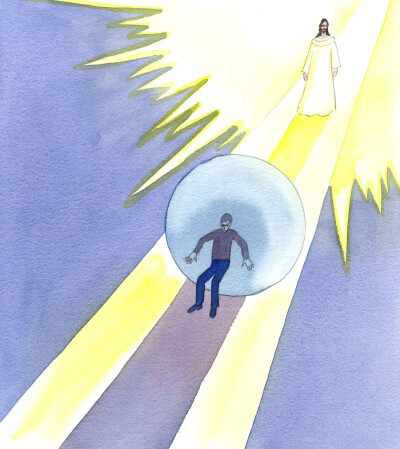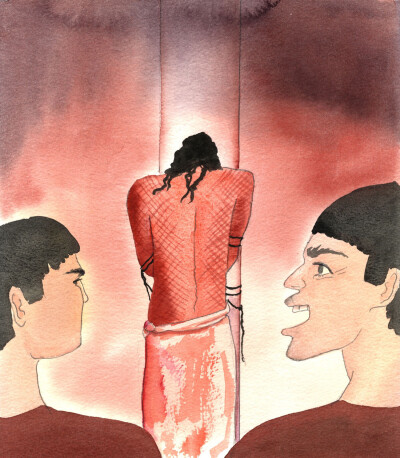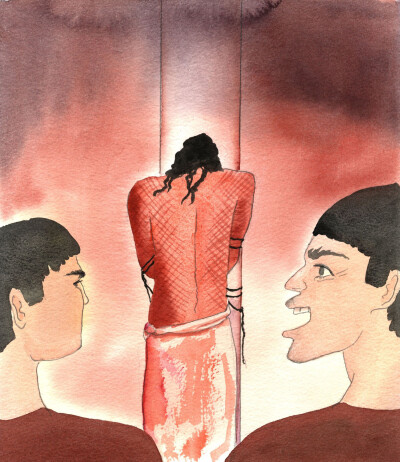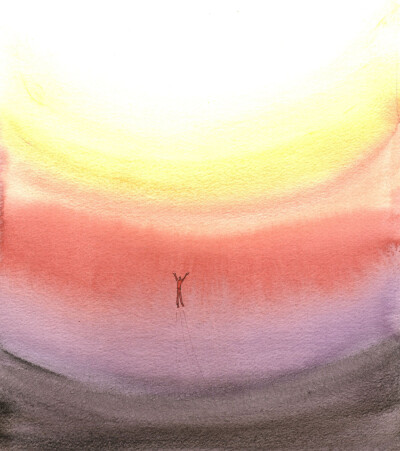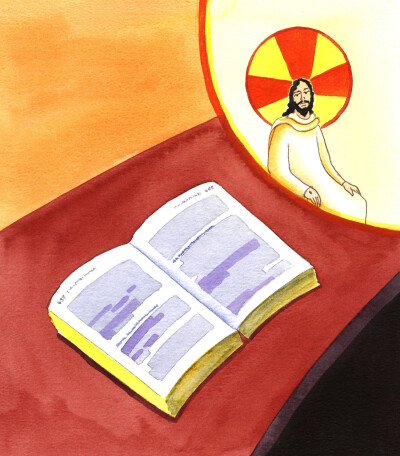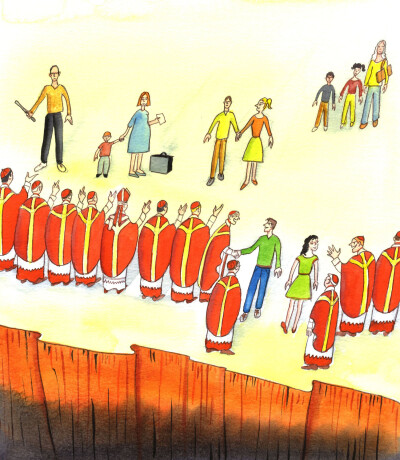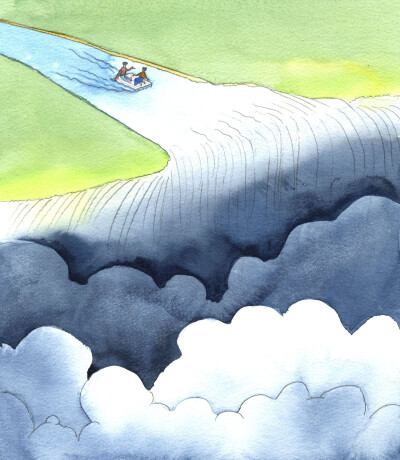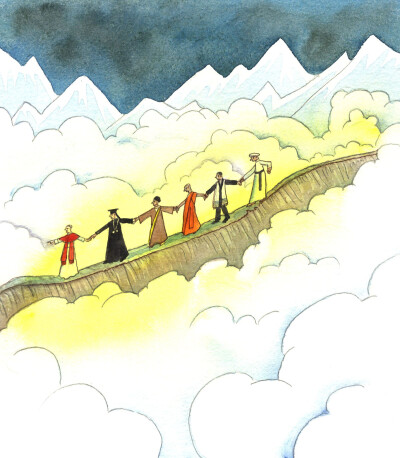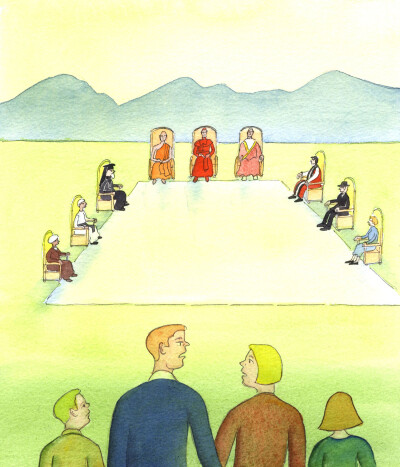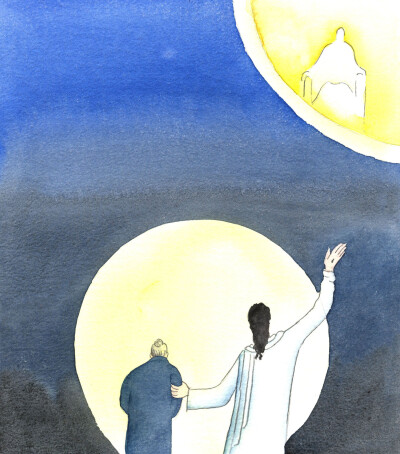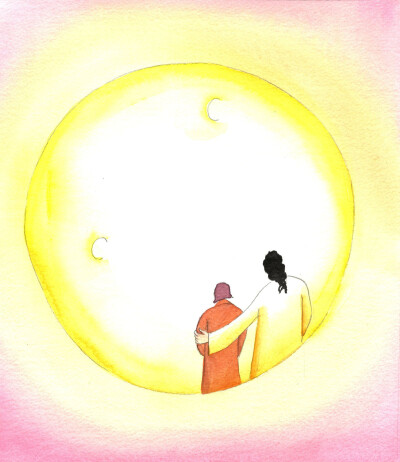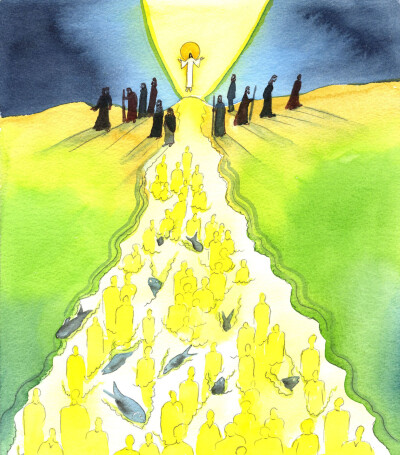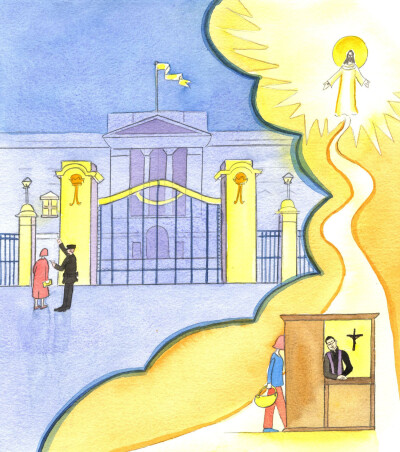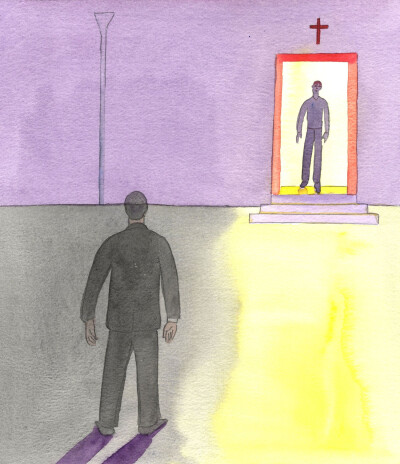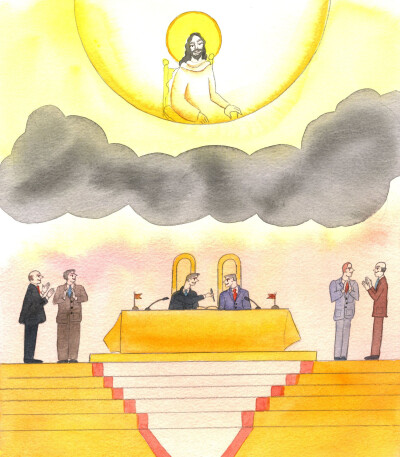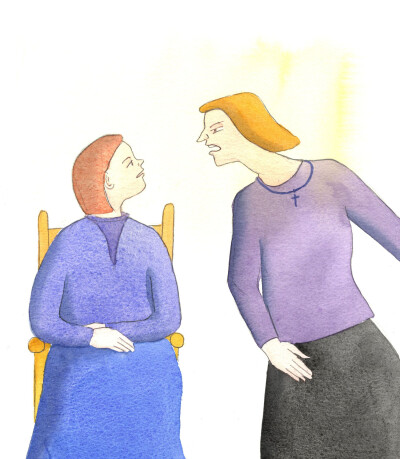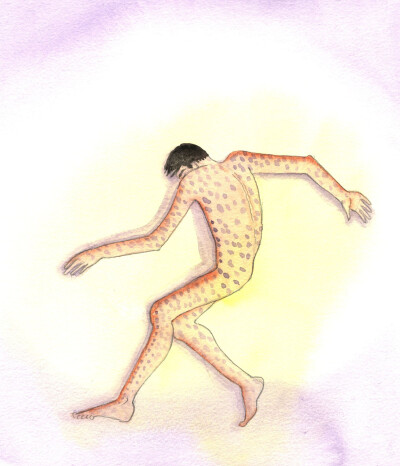Search Page
Showing 501 - 520 of 652
Heroic people in England and Wales have defended the truths of the Catholic Faith, throughout fifteen hundred years - St. Thomas More and St. Margaret Clitheroe amongst them. In our day, brave witness is necessary if people are to realise that it is wrong to kill unborn babies, and that marriage requires a man and a woman to keep their vows, and live together in charity, open to life, in an exclusive relationship which is life-long.
Only because Christ suffered and died, as man, to conquer sin and death by rising up from the grave, has He made it possible for us sinners to follow in His Way. We who trust in Him, and go into the 'tomb' in our Baptism, and renounce sin, and carry our sufferings in patience, like crosses, know that our prayers are heard, and that Heaven awaits all who remain faithful.
Christ looks upon the faithful people who have come to the 'Mass of the Lord's Supper' on Holy Thursday: people only there because they love Him, Who suffered to save us. We touch His heart by our devotion, right up to the stripping of the altar, when we prepare to accompany Christ to Gethsemane.
Many Catholics do not enjoy the lights and consolations that God delights in giving to His faithful children. People who refuse to repent of their grave sins - which they do not want to abandon - act like a man who puts a boulder in the path between himself and Christ. It blocks the flow of light and joy from Heaven. Of his own free will, such a man is refusing Christ's free gifts.
We are sometimes humiliated, slandered or ignored, because of our Christian faith. In His Passion, Christ set us an example. He kept silent, as an example for His friends to follow, as He accepted the Will of the Father, to fulfill the Father's plan of salvation. He had confidence in the Father's love, and the Father's power to save Him.
We are sometimes humiliated, slandered or ignored, because of our Christian faith. In His Passion, Christ set us an example. He kept silent, as an example for His friends to follow, as He accepted the Will of the Father, to fulfill the Father's plan of salvation. He had confidence in the Father's love, and the Father's power to save Him.
The power of prayer, offered in the name of Christ, is extraordinary, especially the greatest prayer: the Sacrificial prayer of Christ in the Mass, offered for the faithful departed as well as the living. A soul in the depths of Purgatory can find himself brought suddenly, swiftly, towards the light of Heaven, as he cries out with joy because he has not been forgotten, but has had a Mass offered for him by a fellow Catholic.
We must trust in Christ's gift to us of the Pope, successor to St. Peter, if there should be a need of clarifications of passages of the documents of the Second Vatican Council. Even untrained lay-persons can see that some phrases and passages are ambiguous; and so we can count on the Pope to explain these in a way faithful to the teaching of the Church through the ages.
Bishops are called to do more than show out niceness. The Bishops of the Church should act, in their faithfulness and preaching, like a 'wall' of truth and care, to prevent any of their flock from falling into the Abyss. When Bishops neglect to preach about sin, but are mainly concerned to be nice to everyone, they will have to account to God for the souls of those whom they let through the gap in the 'wall', without a word of warning.
We should pray for people without faith. People who don't love God or keep the Commandments are as if floating along on the great river of life, mostly unconcerned about the future, but likely to be carried as if over a great waterfall to disaster, when they die, unless they seek help from Heaven. They cannot save themselves by mere will-power, or good works alone.
There are occasions when inter-religious co-operation is wise. It is not wise for Catholic Bishops to take part in inter-religious events that would confuse the Faithful; but when all persons who honour God find themselves in opposition to a series of Godless leaders in Europe, for example, who impose Godless programmes and even immoral plans, for citizens and even children, religious leaders should unite to speak about shared values. When people are in danger, it does not matter whose hands you hold, to remain upright.
It is a cause for joy that there are greater signs of goodwill amongst leaders of various religions than in earlier centuries; yet when our Bishops know that Christ is the only Saviour, and that no other religion, in itself, is salvific, (though individuals may be saved, in them, for special reasons), it is unwise to confuse the Faithful by programmes and meetings that give the impression that it doesn't matter what religion we practice and that each is but another route to Heaven.
We who follow in Christ's Way, faithful to His wishes, should be confident when we turn to the Father in prayer. Despite our many weaknesses, we can know we are heard, simply because we pray in and through Christ. It's as though He stands beside us, reaching up to the Father, praying for us, saying to the Father, about each of us: "Hear her!" or "Hear him!".
If we are tired or despondent, or feel over-burdened by Crosses, we need to reflect on the love that surrounds us, if we have remained faithful, living 'in' God, the Blessed Trinity. What joy we give to the heart of Christ, as He turns to the Father Who sent Him to us, and to the Holy Spirit Who is making us holy, and says with delight: "She loves us!" - or "He loves us!"
We must pray with fervour, that everyone will see the truth: that from Christ, (and from His chosen Apostles) has come a river of redeemed humanity: each person forgiven and transformed by grace - except for those who now resemble dead fish floating in that river because they deserted Christ, whether through deliberate mortal sin or ceasing to believe in Him.
Terrible loss is risked by Catholics too proud to confess mortal sins. If it seems strange that forgiveness from Christ through His Church, in Confession, is like a 'door' to a state of grace, and the promise of Eternal Life if we remain faithful, we need only consider the fortunate few who enter a small gate in the great fence surrounding a great Palace. They have access to great riches, beautiful galleries and artefacts, and a close relationship with the Royal family, having consented to do as they were asked.
Saint Paul warned us that the faithful are 'certain to be attacked'. This harm can be emotional, spiritual or intellectual instead of physical; but we can be wise and prudent as well as patient and uncharitable. It is not wrong to avoid the trouble caused by those who are simply malicious, or unpredictable and unwilling to respond to kindness or to listen to reason.
No matter how detailed an edict or constitution, it cannot foster true happiness or wisdom in a country or continent if there is no mention in it of God, or God's love. To fail to mention God is not to leave aside the question of belief, but to show that faith is irrelevant to those involved; and it demonstrates their ignorance of the importance of Christian history not only locally but also throughout the world.
Satan cannot bear to see Christ's faithful people happy and hopeful. When he cannot cause faithful people to break God's laws he stirs up discontent, or bouts of jealousy or anger, resentment and injured pride, to destroy the peace which is Christ's gift to His friends.
Christ knows about the sufferings of those who endure physical, psychological or emotional torment because of their faithfulness to Him. He understands when we sometimes feel as though we cannot bear another rejection, or day of isolation or insults. He does not blame us for our apprehension, but admires our courage.
Showing 501 - 520 of 652

